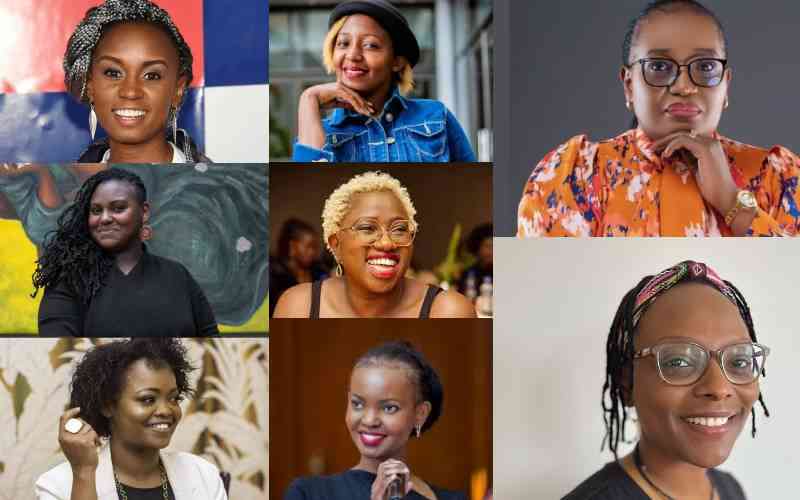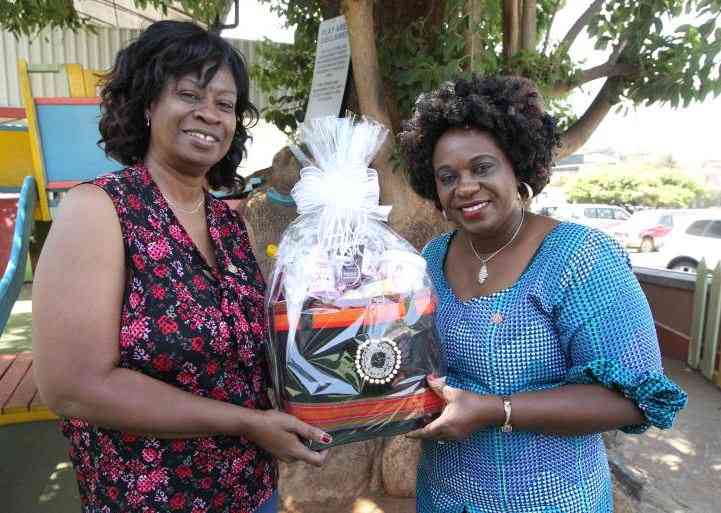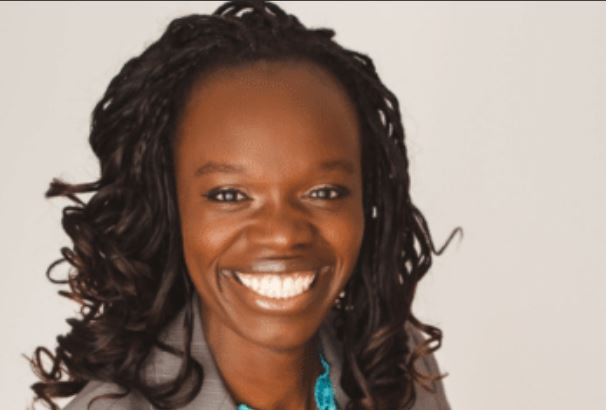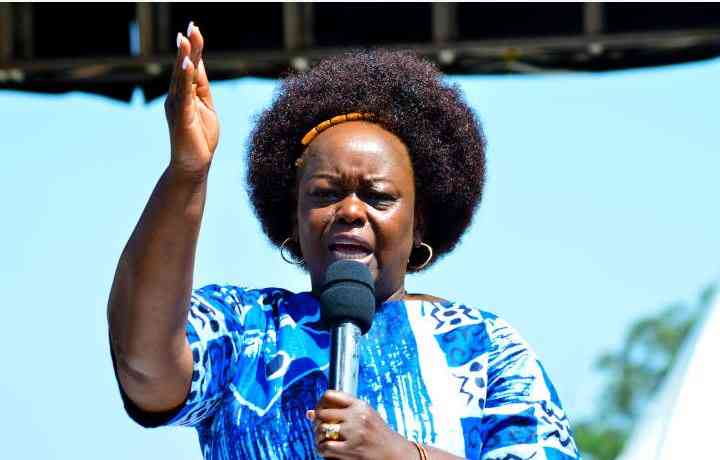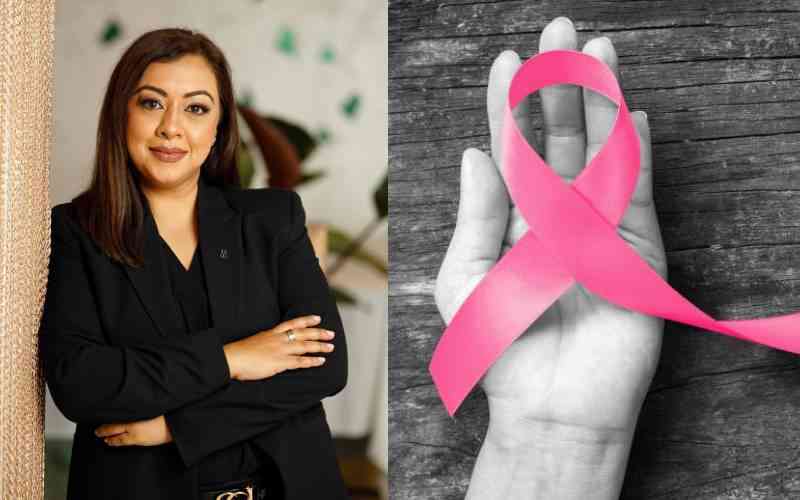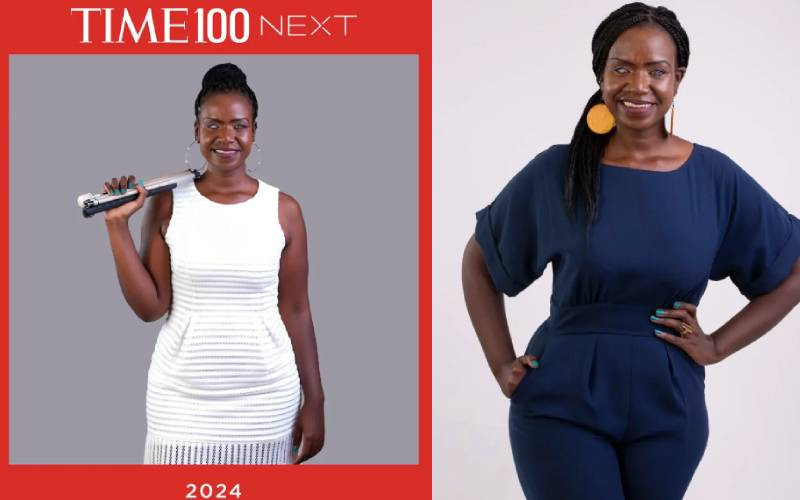
Known in Eastlands and social media as 'Daktari wa Mtaa', Dr Janet Githinji wears her moniker and ghetto upbringing like a badge of honour - so much so that she has used her background and medical training to preach preventative healthcare in the community she grew up in.
In December 2016 doctors went on strike for 100 days. The medics dubbed it ‘Linda Afya 2’ – coming after a similar strike in 2011 (Linda Afya 1).
On its face, the doctors simply wanted better pay. While ‘more money’ was on the list of demands, it was not the only thing.
Dr Janet Githinji felt that the public needed to know the full of it: why, exactly, would doctors down tools and head to the streets.
“I realised that there was no clear understanding why there was this ‘war’. The public generally did not understand why doctors were ditching the lab coat to go picket.
“They did not know why when doctors say: ‘I am tired of supervising death,’ – what this really meant. So I took my phone and gave it to my sister to record me: I wanted to explain what doctors were striking against,” she says.
Her sister was about to hit record when Githinji asked, ‘How do I say it?’
"Kama daktari wa mtaa (like a doctor in the ghetto),” her sister replied.
That marked the dawn of the ‘Daktari wa Mtaa’ persona that today enjoys a good following on social media. The full story is, however, more intricate than that.

Githinji was perhaps a teenager in high school when she first felt strongly drawn to medicine as a career.
She says: “I loved sciences. I was really good in Chemistry and Biology. I also loved listening to people talk about what they were going through.
“I listened to try and help people find solutions to their problems. I really had the desire to help people. Treating to make people healthy therefore caught my interest.”
Githinji was born in Nairobi. To the best of her memory, her family lived in Buruburu in Nairobi's Eastlands area.
“When I was around six-years-old my parents ran into financial problems and we were forced to relocate from the city to the village.”
She recalls that life changed dramatically. She no longer had a close-knit group of friends to play hide and seek with.
Town life was quickly replaced with rural life. Instead of tarmac, concrete and automobiles, Githinji woke up to lush green plantations, domestic animals and a river at the bottom of farm slopes.
“My Kiswahili got replaced with Kikuyu. And just like that life had changed,” she says.
By the time she was getting to upper primary school her parents were executing a return-to-the-city plan.
“We came back to Nairobi and started life afresh in Ofafa-Maringo area,” she says.
Like it had happened when the family moved to the village, the move back to the city forced Githinji to shed off the village girl and grow into her new environment.
“Kikuyu went out of the window and it was replaced with Sheng,” she says.
Because of the frequent relocations, Githinji says she went to many primary schools, eventually sitting her Kenya Certificate of Primary Education (KCPE) examinations at Wanja and Kim Primary School in Nairobi’s Eastlands.
In Eastlands – where Githinji says she did most of her growing up – Sheng permeated every conversation.

In Ofafa-Maringo, she says, there was a strong sense of community amidst poverty. Neighbours embraced barter trade because money was hard to come by.
Crime was rife and criminals existed in a double world where their criminal ways were known, but, at the same time, they were ‘the guys and girls next door’.
“The first time I witnessed a person (suspected criminal) get lynched was while we lived there. It was a traumatising experience.”
Her mother had since taken up selling second-hand shoes in Gikomba and her father’s career as a mechanical engineer was picking up.
Her mother had always insisted to Githinji and her siblings on the importance of studying hard. And Githinji did study hard.
She passed her KCPE and was admitted to Pangani Girls High School – a national school.
Her parents moved houses – to a neighbourhood with less crime. “My parents were determined that we would grow with the realisation that there was more to life than what we grew up seeing,” she says.
In 2001 she sat for her Kenya Certificate of Secondary Education examinations and scored an A-. She missed the Joints Admissions Board cut-off mark that would enable her to study Medicine at University of Nairobi by only a point.
But she remained adamant that she wanted to study medicine. "Is that your final answer," she recalls being asked by her mother. To this she responded to the affirmative.
There was only one route left: to enroll as a private student. She did and was accepted into the programme.
Six years later, and with several of her parents’ property sold to keep her in school, Githinji graduated and became a doctor.
A few years later, she enrolled for a Master’s degree in obstetrics and gynaecology, graduating in 2016.
Today Githinji is a resident obstetrician and gynaecologist at Metropolitan Hospital in Buruburu: just next to where she grew up.
In 2018, Githinji created social media pages with the moniker Daktari wa Mtaa, where she uploads educational videos. Through the initiative, she seeks to meet, interact, find out more and reason with people in the ghettos of Eastlands.
Watching her productions, one thing is clear: in an instant, she can go from London English to Sheng with no struggle.
To the casual listener, her Sheng is so good that when she speaks, many immediately start doubting her academic accomplishments – something she admits happens a lot.
It turns out, you can take Githinji out of the Ghetto but you can’t take the ‘ghetto’ out of her. And she wears it like a badge of honour.
Even so, she notes, there are some subtle differences between Dr Githinji and Daktari wa Mtaa.
“Dr Githinji is more formal and serious-looking. She is still approachable, but most likely would look and act like you would expect of a doctor.
“Daktari wa Mtaa, on the other hand, is less inhibited and speaks in Sheng. You will find her in the community: talking to people in the language they understand.”

On average, she ventures into the community once a week. “On weekends, mostly,” she says.
When she does, she convenes with them in a meeting. She broaches a topic and listens keenly to their questions.
She gives everyone the chance to speak their hearts. She, too, participates in the debates – completely putting aside her ‘Dr’ title and assuming her place in the ghetto; a place she rightfully acquired growing up.
Daktari wa Mtaa, Githinji says, seeks to provide free advice and consultation for folks in informal settlements.
“Early in my practice we collected patient history as we sought to treat each person who visited the hospital.
“Day in day out patients would come and we would work to treat them. And the cycle continued. It dawned on me that a patient is more than a sick person.
“These were mothers, fathers, brothers and sisters. Someone just wants to get well and get back to work so that they can provide for their family. These were people with dependents.
“The system is structured for doctors to treat people who are already sick. I, however, strongly felt that preventive care would be good for the average person – so that we prevent even the need for the patient to come to hospital,” she says.
Through Daktari wa Mtaa, Githinji has done just that: disseminate information on preventive healthcare.
Being the ghetto doctor has offered many in the communities she frequents free medical consultation that arguably has served to instill healthy lifestyle.
For her, Daktari wa Mtaa has given her a sense of purpose. Helping people get from illness to good health is what makes her happy.
It is a job she says she could do for free – if only there was an alternative way to feed herself and her family.
 The Standard Group Plc is a multi-media organization with investments in media platforms spanning newspaper print
operations, television, radio broadcasting, digital and online services. The Standard Group is recognized as a
leading multi-media house in Kenya with a key influence in matters of national and international interest.
The Standard Group Plc is a multi-media organization with investments in media platforms spanning newspaper print
operations, television, radio broadcasting, digital and online services. The Standard Group is recognized as a
leading multi-media house in Kenya with a key influence in matters of national and international interest.

